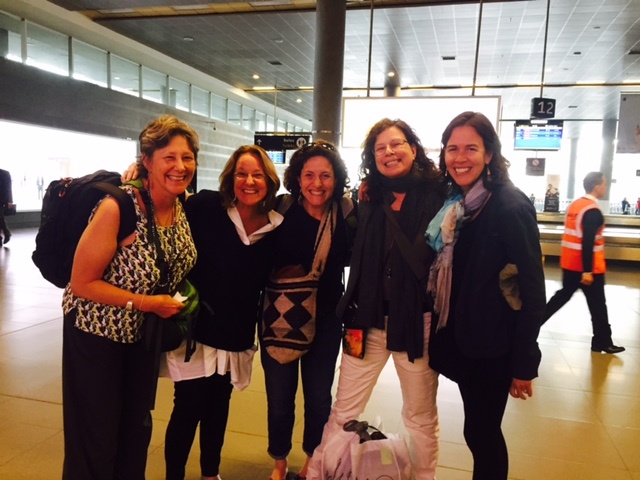
Root Capital SVP Catherine Gill (center) with trip participants.
Through this blog, we try to bring you close to our clients and their stories. Sometimes, some of our partners and donors take the opportunity to get even closer, and accompany us over the mountain and down the muddy road to meet the farmers and see firsthand the amazing agricultural businesses we work with.
Two weeks ago, the Root Capital crew – our senior vice president, Catherine Gill, our Colombian loan officer, and I – bused around Colombia’s coffee lands with partners from the Weissberg Foundation, Dietel Partners, and the Aspen Institute – on a Women-in-Agriculture-themed trip.
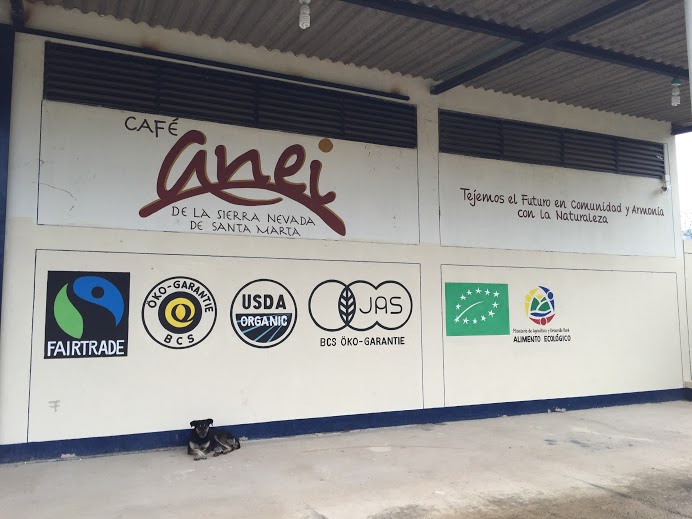
The coffee collection center at ANEI
We headed first to the land of the Arahuaco, Colombia’s largest indigenous group, to meet with a 600-member coffee cooperative called ANEI. The cooperative has been a Root Capital client since 2012, and purchases harvests from farmers representing four different indigenous groups and mestizo farmers.

Aurora Maria Izquierdo, founder of ANEI
At their coffee headquarters in Valledupar, we were greeted by Aurora Maria Izquierdo, the charismatic founder with a slightly mischievous grin, and the first to leave her community to study, and her team – mostly young people in their 20s who ANEI is encouraging, and in some cases financially supporting, to pursue college degrees and bring fresh ideas to the organization’s operations. In the words of Zeleywia Izquierdo Suarez, one of the up-and-coming young female leaders at ANEI, “We dream in leaps, not steps.”
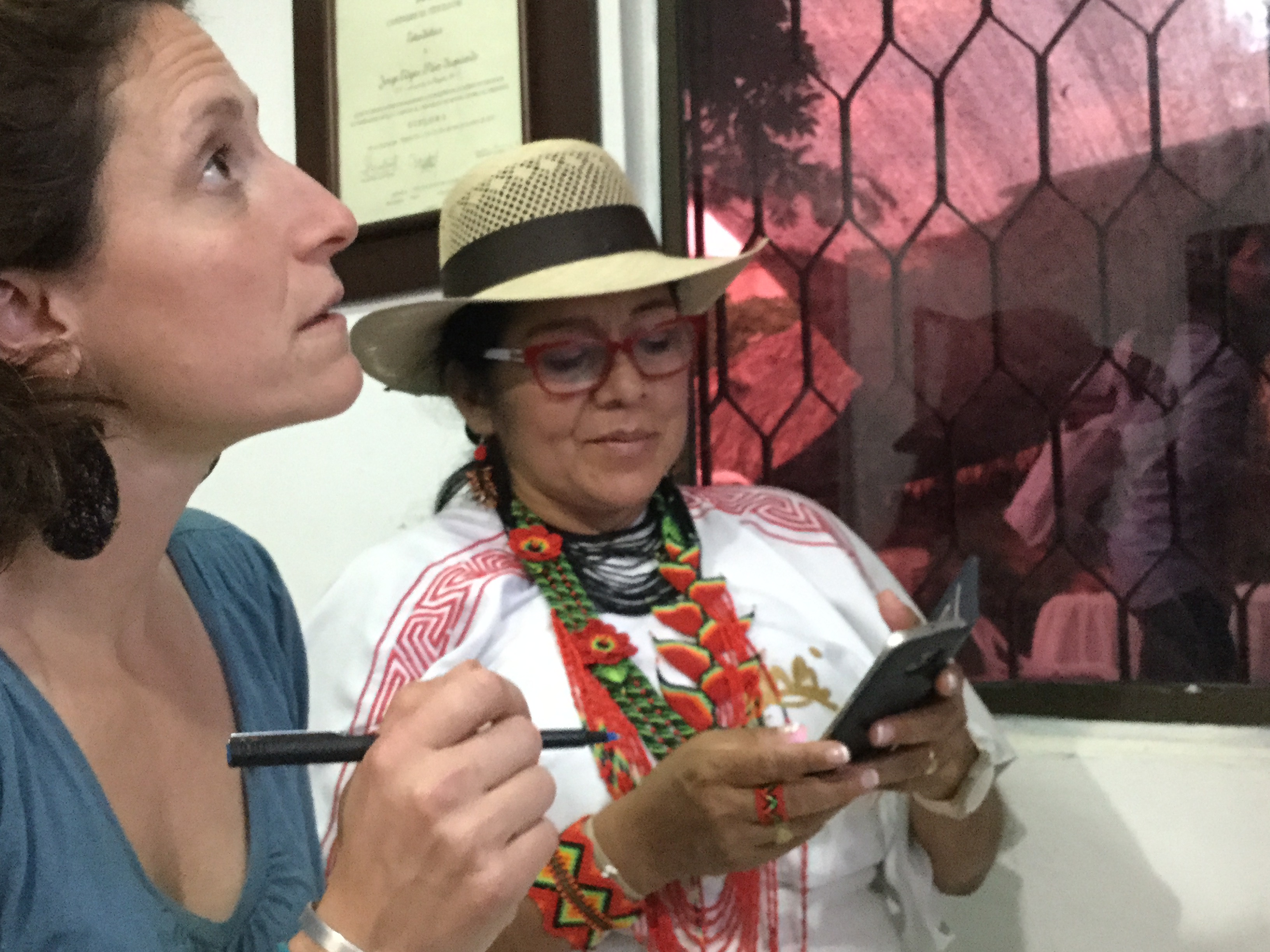
Root Capital SVP Catherine Gill and ANEI founder Aurora Maria Izquierdo calculating coffee sales
After a day of sharing in the office, including a coffee tasting led by two young women coffee cuppers – a high-skill, high-status job usually reserved for men in coffee cooperatives – we had the privilege of traveling to the Arahuaco capital, Nabusimake.
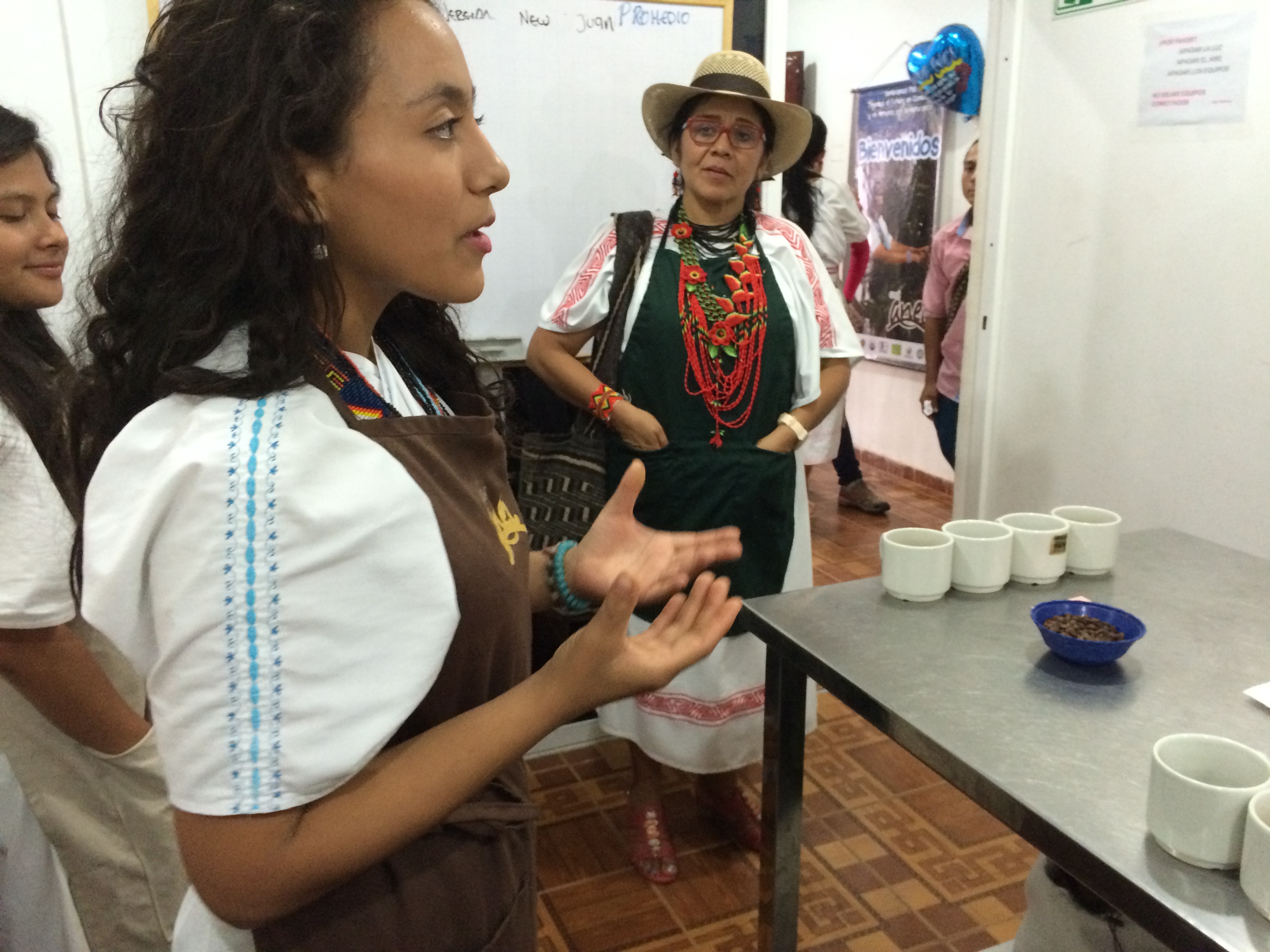
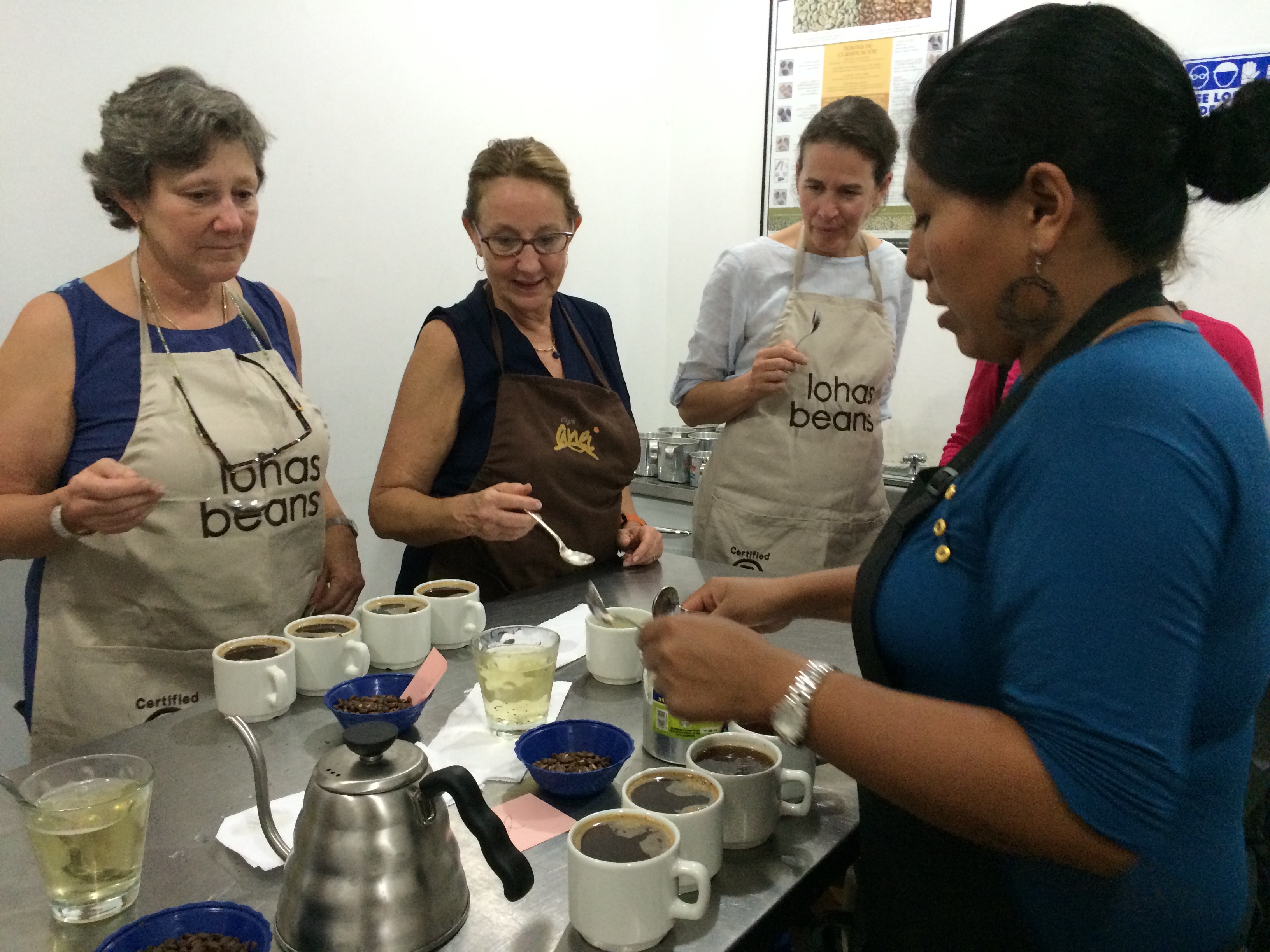
Among all the dirt roads I’ve traveled, I’ve never seen a road quite like the one we traversed to get there. When we looked out the 4×4 dashboard, all we saw ahead of us was a rocky trail up the mountain.

We arrived to fresh arepas and a warm welcome from the mamos (the wise village elders). Throughout the day, we got a uniquely intimate, generous introduction to Arahuaco culture.

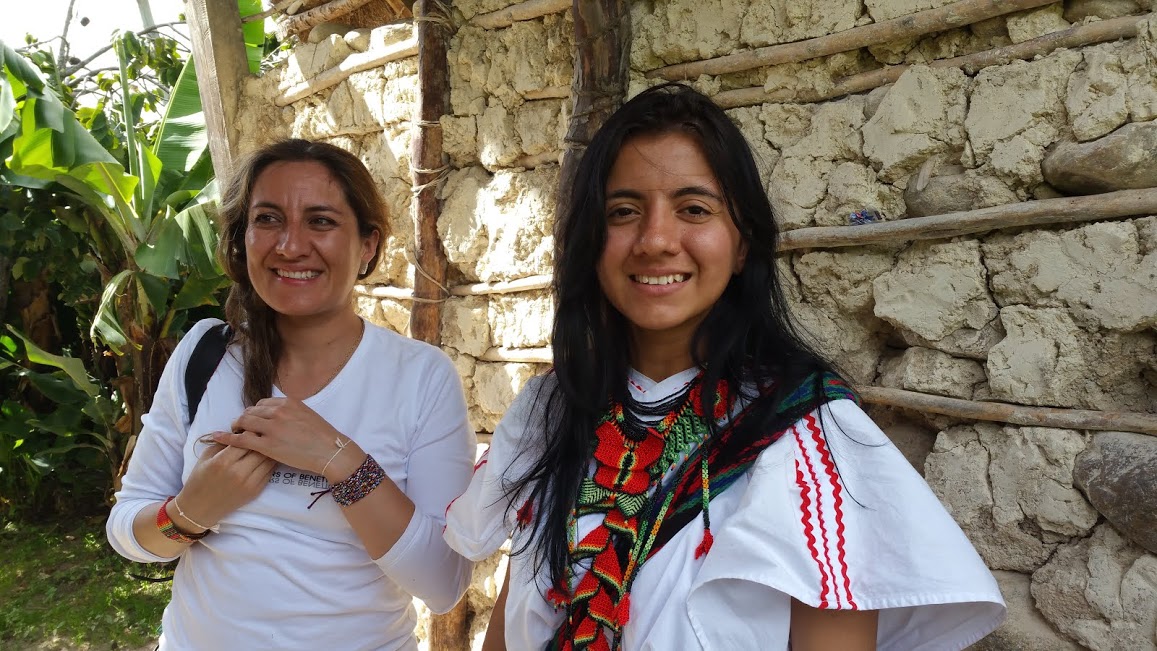
We learned about the Arahuacos’ priorities – preserving their cultural traditions, maintaining their environment, and thriving economically – and that coffee gave them the means to realize their vision.
We heard too about evolving gender roles in their community – specifically the increasingly large role women are playing. The elders have ushered in the era of women with the proclamation that “Men have heated the earth, and it’s time for women to cool it”. (Wow!)

Outside a women’s ceremonial house in Nabusimake
After visiting ANEI, we headed southwest to Cauca, to visit COSURCA and Federación Campesina del Cauca (FCC), Root Capital clients since 2005 and 2009, respectively.
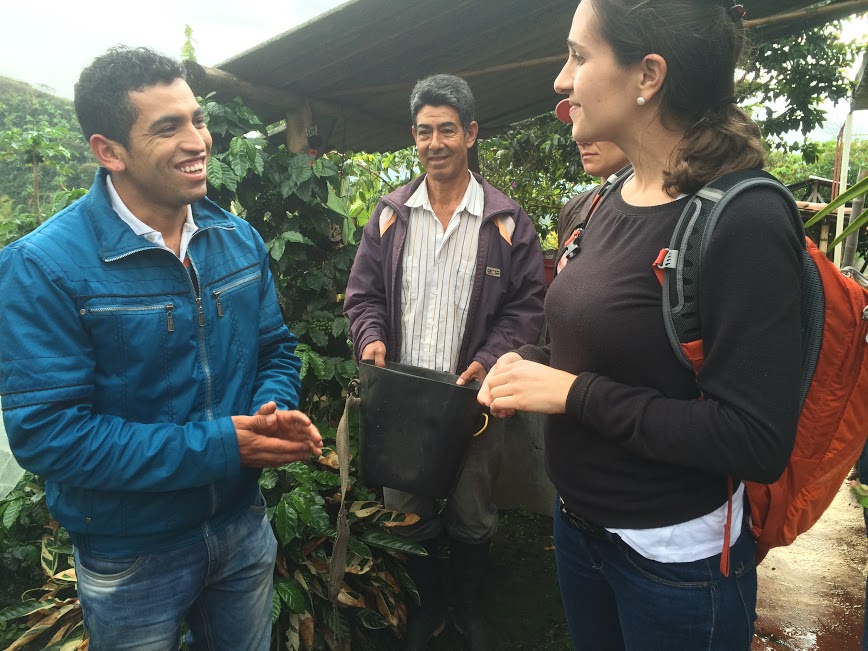
An agronomist at COSURCA explaining the coffee harvesting process
Here, we heard how these local coffee associations have fought to create and maintain a viable economic alternative to the drug economy in a rural area that just eight years ago was one of the violent hot zones of conflict between the FARC and the paramilitary. To promote its message of peace, COSURCA is currently looking to establish its own university with curricula jointly focused on business skills for agriculture, and a philosophy of peace and self-determination.
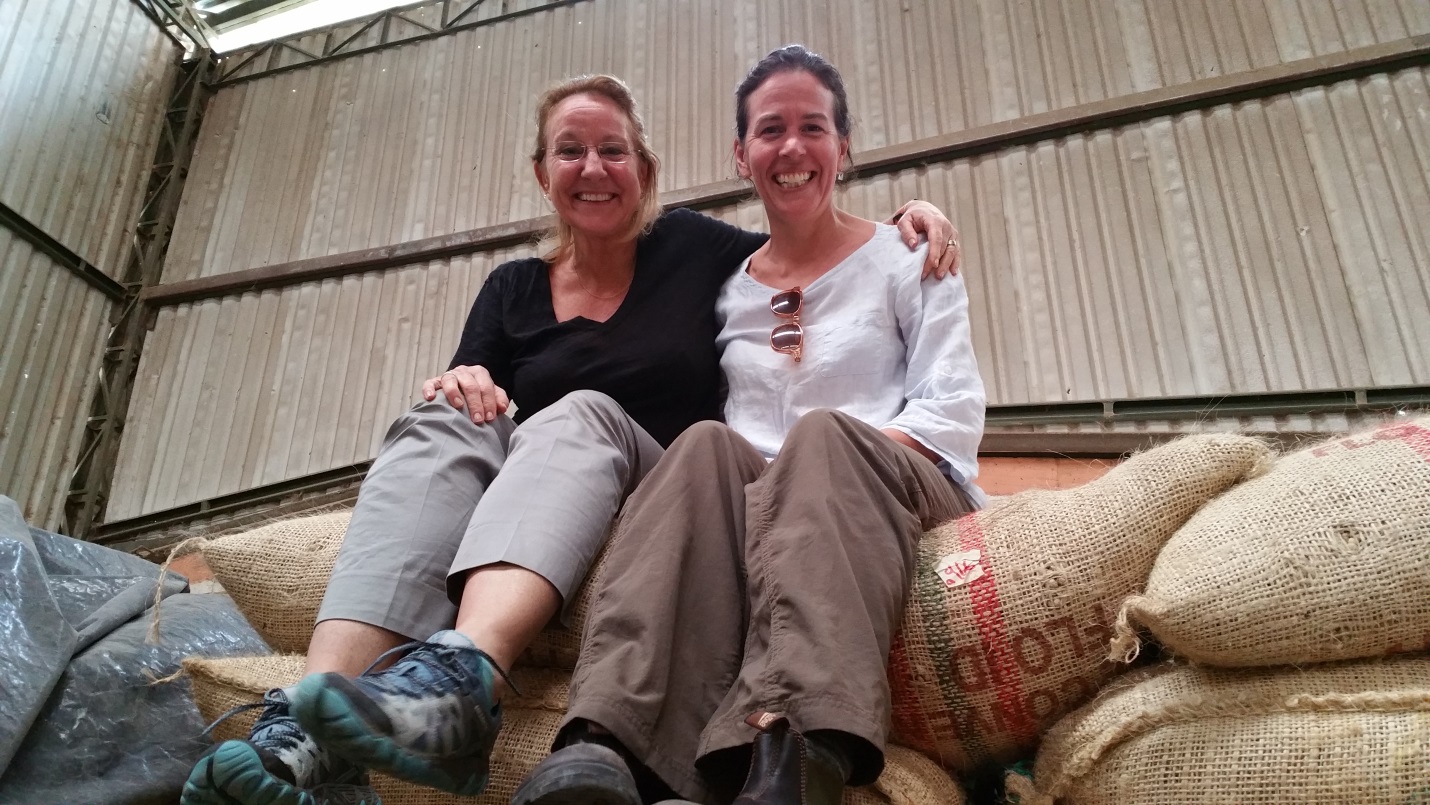
Sitting on bags of coffee destined for export
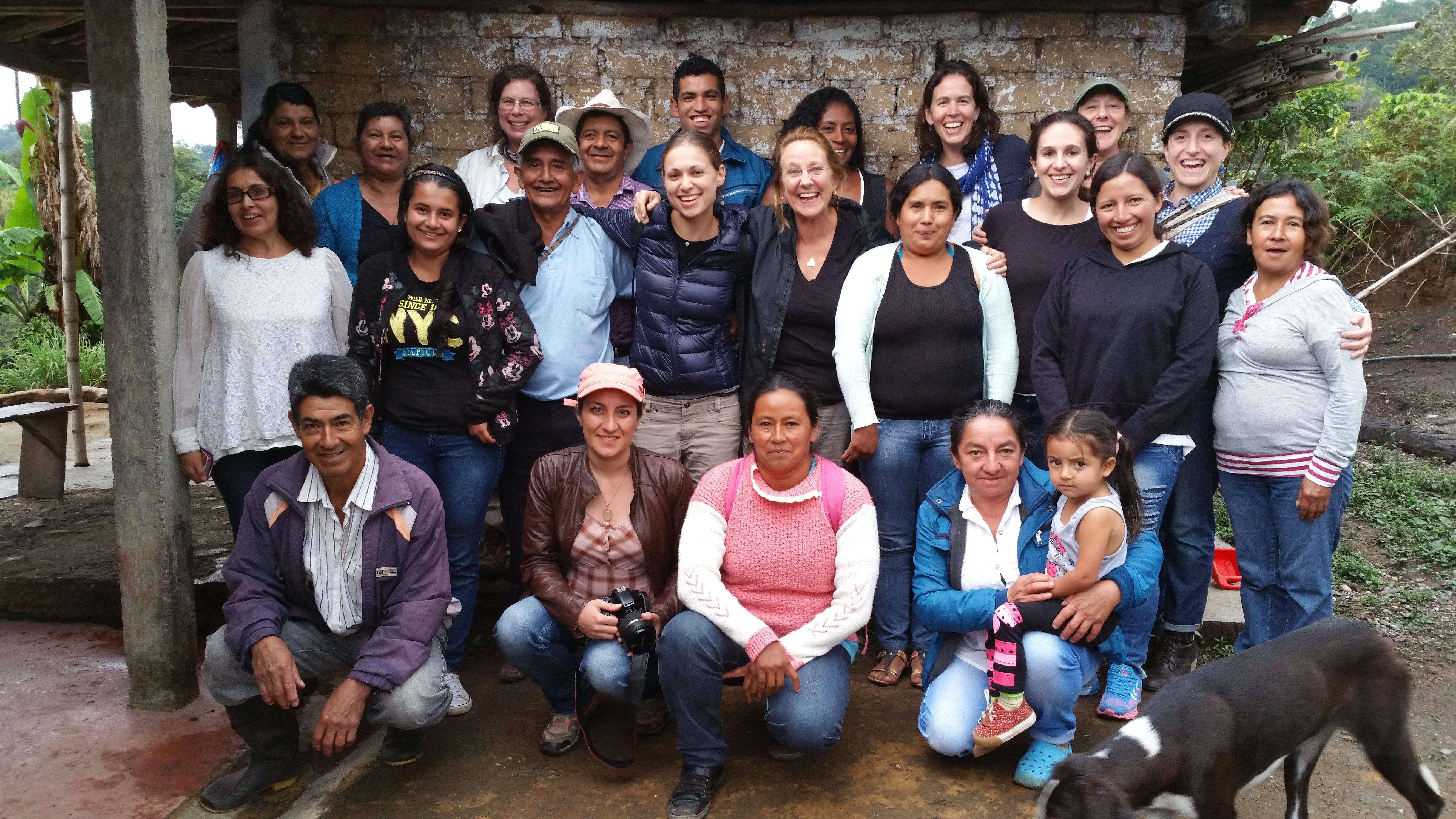
Parting group shot with members of COSURCA
We left touched, jarred and inspired. What a privilege it was to meet these folks, to learn from them, and to feel great about continuing to work with them in pursuit of their visions.

What do you think?